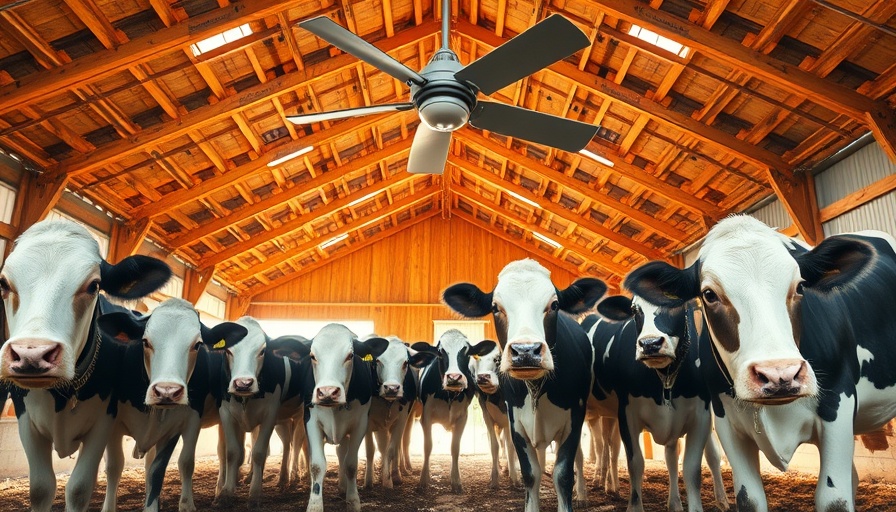
Understanding Heat Stress and Its Long-Term Effects on Calves
Heat stress is a pressing concern for dairy farmers, particularly as climate change exacerbates temperatures worldwide. A recent study conducted by the University of Florida has shed light on the far-reaching consequences of heat stress on calves, revealing that the impact transcends immediate production losses and extends into their future performance and health.
The Research Study: What Did They Find?
Over the course of ten years, researchers compared two groups of dairy cows: one group experienced heat stress, while the other was kept in a more controlled environment with shade, ventilation, and cooling systems. The findings were striking: calves born to the heat-stressed cows produced significantly less milk in their first three lactations—an average of 2.2 kg, 2.3 kg, and 6.5 kg less per day compared to their counterparts born from cooled mothers. Moreover, subsequent generations were also implicated, as the granddaughters of heat-stressed cows showed a production deficit of 1.3 kg during their first lactation.
The Biological Mechanism Behind Heat Stress
According to experts like Herke Pijl from Agrifirm, the biological mechanisms that lead to these performance issues can be traced back to how nutrients are exchanged between the mother and calf during pregnancy. Heat stress alters placental functions, leading to fewer placental sites where nutrients can exchange. This complicates areas critical for fetal development and nutrition. The long-term consequences are profound, shaping not just the immediate offspring but future generations as well.
The Role of Epigenetics
This phenomenon illustrates epigenetics at work, where the environment—in this case, heat—alters gene expression in developing calves. Henk Jan Lieftink from ForFarmers emphasizes that while the DNA of heat-stressed calves is unchanged, the expression of those genes is modified. This change impacts critical components such as immunoglobulin levels in the blood, which are vital for the calf's early immune system development.
Practical Insights for Dairy Farmers
For dairy farmers, these findings highlight the importance of managing heat stress not just to bolster current productivity but to ensure the long-term health and efficiency of future herds. Providing adequate cooling systems, improved nutrition, and veterinary care can be beneficial strategies. Farmers who invest in solutions to mitigate heat stress may find that their overall herd health improves, resulting in better productivity across generations.
Looking Ahead: Climate Change and Heat Stress
As climate change continues to elevate global temperatures, understanding the implications of heat stress becomes even more critical. Farmers must stay informed regarding emerging research and potential strategies to manage the emotional and financial toll that climate stress can impose on dairy farming.
In conclusion, addressing heat stress is not only a matter of current herd productivity but also a long-term agricultural strategy that benefits future dairy generations. By taking proactive measures now, farmers can protect both their livelihoods and the health of their animals.
 Rij toevoegen
Rij toevoegen






Write A Comment